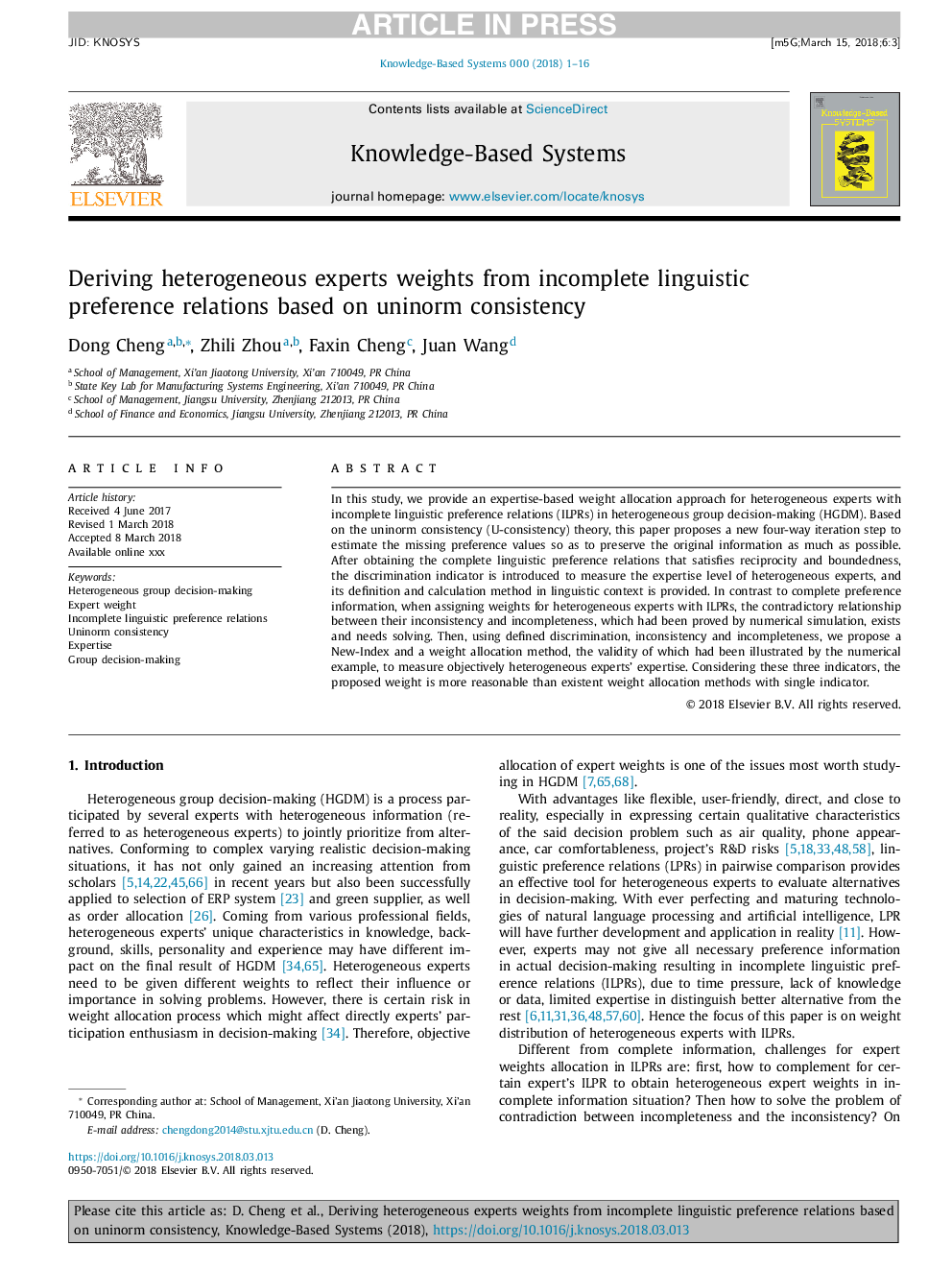| Article ID | Journal | Published Year | Pages | File Type |
|---|---|---|---|---|
| 6861468 | Knowledge-Based Systems | 2018 | 16 Pages |
Abstract
In this study, we provide an expertise-based weight allocation approach for heterogeneous experts with incomplete linguistic preference relations (ILPRs) in heterogeneous group decision-making (HGDM). Based on the uninorm consistency (U-consistency) theory, this paper proposes a new four-way iteration step to estimate the missing preference values so as to preserve the original information as much as possible. After obtaining the complete linguistic preference relations that satisfies reciprocity and boundedness, the discrimination indicator is introduced to measure the expertise level of heterogeneous experts, and its definition and calculation method in linguistic context is provided. In contrast to complete preference information, when assigning weights for heterogeneous experts with ILPRs, the contradictory relationship between their inconsistency and incompleteness, which had been proved by numerical simulation, exists and needs solving. Then, using defined discrimination, inconsistency and incompleteness, we propose a New-Index and a weight allocation method, the validity of which had been illustrated by the numerical example, to measure objectively heterogeneous experts' expertise. Considering these three indicators, the proposed weight is more reasonable than existent weight allocation methods with single indicator.
Keywords
Related Topics
Physical Sciences and Engineering
Computer Science
Artificial Intelligence
Authors
Dong Cheng, Zhili Zhou, Faxin Cheng, Juan Wang,
